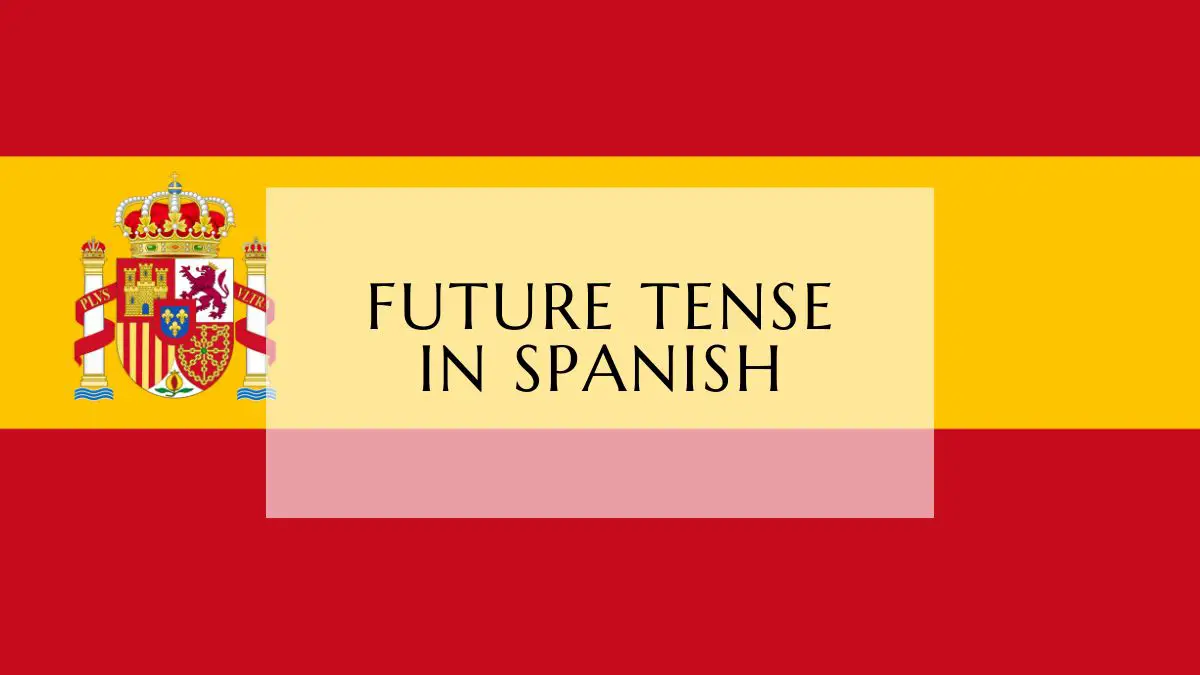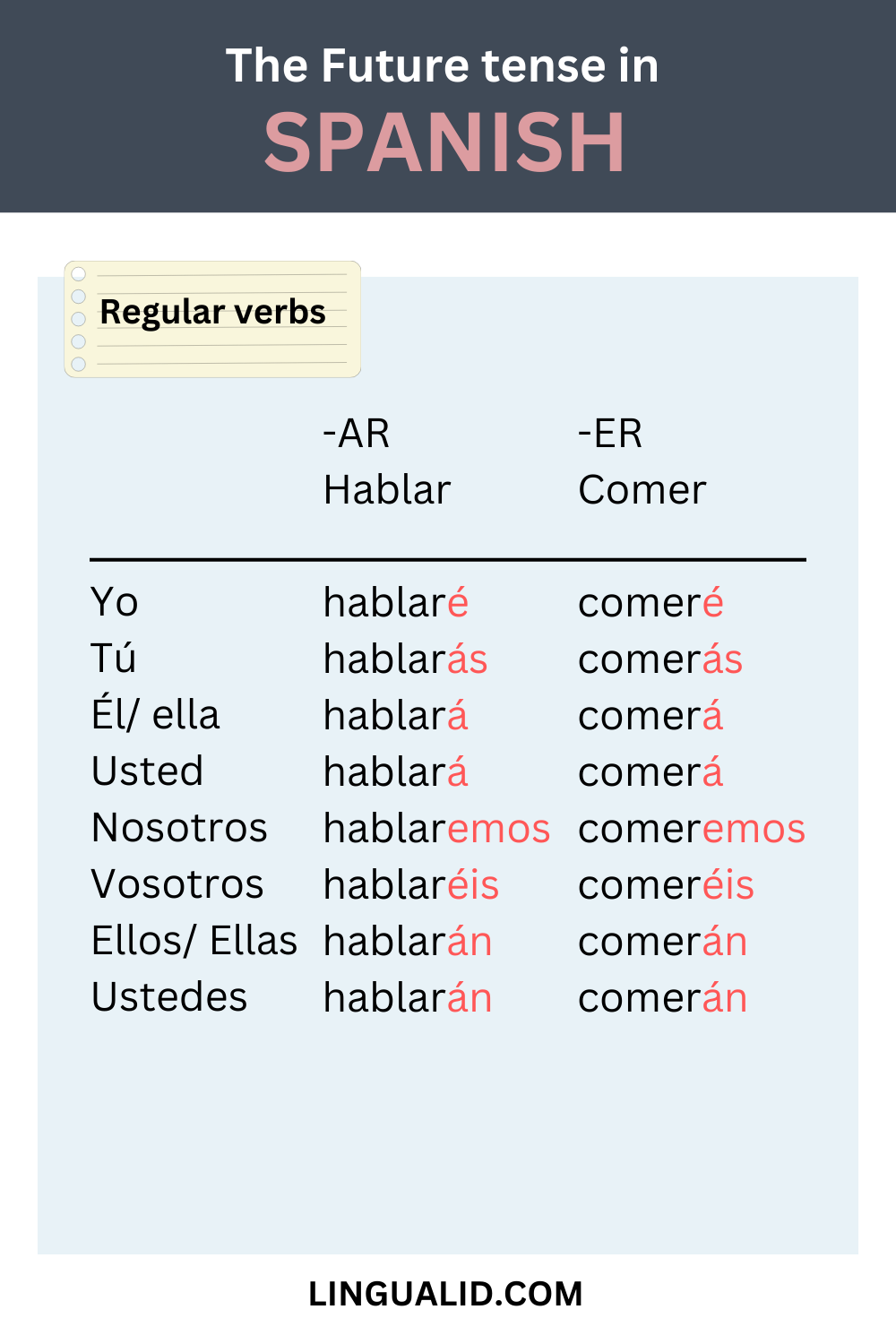In this lesson we will talk about the future tense in Spanish, the two ways of expressing it, followed by examples.

In Spanish, the future tense can be expressed in two ways: adding a suffix to the end or by using “ir a + infinitive”.
We us the future tense El futuro to:
- Talk about something that will take place in the future
- Predictions and probabilities (like the weather for example)
Future Tense Form In Spanish
All verbs add these endings to their infinitive, and we don’t remove the endings (unlike the present tense)
| Yo | -é |
| Tú | -ás |
| Él/ ella | -á |
| Usted | -á |
| Nosotros / Nosotras | -emos |
| Vosotros / Vosotras | -éis |
| Ellos / Ellas | -án |
| Ustedes | -án |
Example: estudiar (to study)
| Yo | estudiaré |
| Tú | estudiarás |
| Él/ ella | estudiará |
| Usted | estudiará |
| Nosotros / Nosotras | estudiaremos |
| Vosotros / Vosotras | estudiaréis |
| Ellos / Ellas | estudiarán |
| Ustedes | estudiarán |
Hablar (to speak)
| Yo | hablaré |
| Tú | hablarás |
| Él/ ella | hablará |
| Usted | hablará |
| Nosotros / Nosotras | hablaremos |
| Vosotros / Vosotras | hablaréis |
| Ellos / Ellas | hablarán |
| Ustedes | hablarán |
Comer (to eat)
| Yo | comeré |
| Tú | comerás |
| Él/ ella | comerá |
| Usted | comerá |
| Nosotros / Nosotras | comeremos |
| Vosotros / Vosotras | comeréis |
| Ellos / Ellas | comerán |
| Ustedes | comerán |
Hacer (to do)
| Yo | haré |
| Tú | harás |
| Él/ ella | hará |
| Usted | hará |
| Nosotros / Nosotras | haremos |
| Vosotros / Vosotras | haréis |
| Ellos / Ellas | harán |
| Ustedes | harán |
Note: “Hacer” changes to “har” before adding the ending (irregular verb)
More examples:
Estudiaré el español – I will study Spanish
Llegaré mañana – I will arrive tomorrow
Ellos viajarán a Marruecos – They will travel to Morocco
Note: you can practice what you’ve learned here, and learn how to pronounce each of the words in our Memrise course here, don’t know how to use the platform or sign up? we’ve got you covered in this easy-to-follow tutorial here.
Future Tense Using “ir a + infinitive”
This is what we use in daily life + it’s easier, you only need to conjugate “ir” in the present and add the verb that you want to express in the future in its infinitive form, e.g. Voy a estudiar el español (I will study Spanish)
Here is the conjugation of the verb “ir” in the present:
| Yo | voy |
| Tú | vas |
| Él/ ella | va |
| Usted | va |
| Nosotros / Nosotras | vamos |
| Vosotros / Vosotras | vais |
| Ellos / Ellas | van |
| Ustedes | van |
Voy a llegar mañana – I will arrive tomorrow
Ellos van a viajar a Marruecos – They will travel to Morocco

Happy learning!
